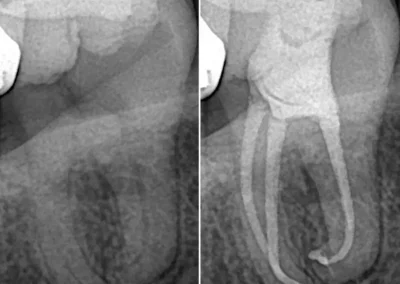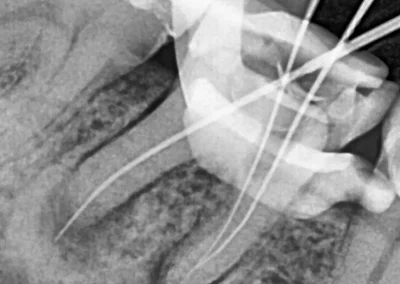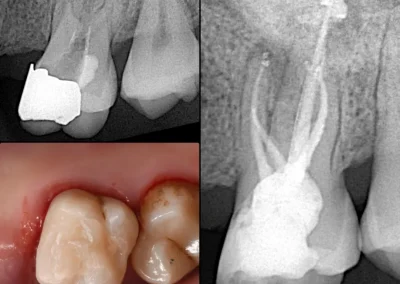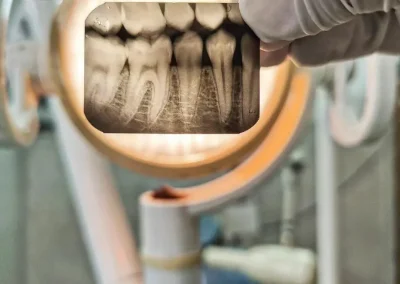Digital Dental X-rays and 3D Imaging in Tucson
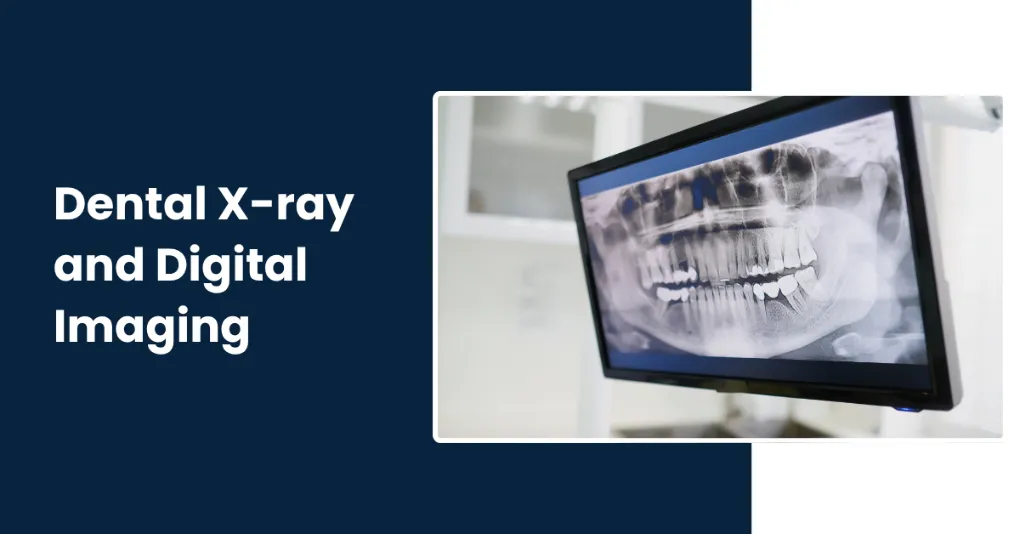
Has your dentist recommended an X-ray? It’s often because something deeper may not be visible during a regular exam. At Rincon Dentistry in Tucson, we use advanced digital dental X-rays to identify decay, bone loss, and other conditions early.
Our imaging systems produce high-definition results with minimal radiation. From routine check-ups to evaluating pain or preparing for treatment, every scan is done quickly, safely, and at a fair cost.
Meet Your Tucson Dentist
Dr. Brock Boudreaux, (pronounced “Boo-drow”) attended Utah Valley University for his undergraduate degree. After which he traveled across the country to Kentucky where he received his Doctor of Dental Medicine degree from the University of Louisville School of Dentistry. Though he is a Louisville Cardinal for life, he is finding it very easy to become a Wildcat fan!
Let’s Get Your Smile
Taken Care Of
Do you have a question or would you like to schedule a visit? Contact our team, and we will assist you right away. We are here to offer thoughtful guidance and a smooth start to your care.
Our Professional Dental X-ray Services in Tucson
We perform a complete range of dental imaging in one place. From simple bitewing scans to detailed 3D cone beam images, you can get the exact type of X-ray you need without visiting another facility. Each image is reviewed carefully to ensure clear, reliable results that help guide your treatment.
Intraoral X-rays:
Bitewing X-rays
When chewing feels uncomfortable or sensitive, bitewing X-rays help detect cavities between teeth or below old restorations. These scans show both upper and lower teeth, revealing decay and bone health in one view.
We have been serving Tucson patients for years with modern imaging and honest guidance, keeping every visit quick, easy, and fairly priced.
Periapical X-rays
If sharp pain or swelling appears near a specific tooth, a periapical scan helps identify decay, infection, or bone loss. It captures the full tooth from crown to root, offering a complete picture of its condition. Our advanced digital sensors deliver crisp results in seconds while keeping exposure low.
Occlusal X-ray
Swelling under your tongue or difficulty biting could signal a deeper concern. This scan shows the floor and roof of your mouth to identify impacted or extra teeth, cysts, or jaw fractures that regular images can miss.
Our sensors capture the entire dental arch in one scan without discomfort. Visit today for a quick and affordable scan without a long waiting time.
Extraoral X-rays:
Panoramic X-ray
When you are experiencing jaw pain, missing teeth, or preparing for dental implants, panoramic imaging provides a full view of your mouth, jawbone, and sinuses. It helps identify infections, bone loss, or sinus conditions not visible in standard X-rays.
We also perform full-mouth (FMX) radiographs for complete oral evaluation. Each scan is efficient, affordable, and reviewed carefully so you understand every finding.
3D Cone Beam Scans (CBCT)
For implant planning, oral surgery, or jaw discomfort, 3D cone beam scans (CBCT) give a detailed 3D view of your teeth and bone. This scan is painless and helps plan treatments with precision and safety.
Dr. Brock uses CBCT to measure bone density, locate nerves, and evaluate TMJ conditions accurately. It’s a key part of planning implants and complex dental procedures.
Dental X-rays for Specific Conditions at Our Tucson Clinic
We have designed specific scans to target certain dental problems rather than routine exams. These focused X-rays help detect decay, bone changes, TMJ issues, and wisdom tooth concerns early. They make it easier for your dentist at Rincon Clinic to plan precise, effective treatment before pain or damage worsens.
- X-ray of Tooth Decay
- Cavity X-ray
- Dental Bone Loss X-ray
- Temporomandibular Joint (TMJ) X-ray
- Wisdom Tooth X-ray
X-ray of Tooth Decay
If you have noticed dark spots or sensitivity after eating, dental X-rays can pinpoint early signs of decay before they cause pain. We use high-resolution intraoral scans that show the structure of your teeth and gums clearly, so treatment can start on time.
Cavity X-ray
When food gets trapped between teeth or you feel sudden pain while biting, a cavity X-ray helps detect decay early. It captures both upper and lower teeth in one scan, highlighting even the smallest problem areas.
We offer flexible payment options and modern imaging for clear, quick results. Book your visit today for reliable and affordable diagnostics.
Dental Bone Loss X-ray
If your gums bleed often or your teeth feel loose, this X-ray checks the strength of the bone surrounding them. Our team uses detailed periapical imaging to assess bone density and catch thinning before it progresses.
At our Tucson clinic, we perform your scans with clear communication and accurate imaging for confident diagnosis.
Temporomandibular Joint (TMJ) X-ray
If you feel pain near your jaw, face, or ear, a TMJ X-ray helps identify problems in the jaw joint or nearby muscles. It can also reveal small tooth cracks that aren’t visible during an exam.
Our digital system captures your jaw and bite in one image with minimal radiation, providing clear results quickly.
Wisdom Tooth X-ray
If you feel pressure or swelling at the back of your mouth, a panoramic or CBCT scan helps evaluate your wisdom teeth. It shows their position, growth direction, and any signs of decay or impaction.
Our technology captures 2D and 3D views of your mouth for best assessment. Our Tucson clinic keeps the process straightforward, accurate, and fairly priced.
Frequently Asked Questions
What do dental X-rays show?
It shows the internal structure of your teeth, their root, and jawbone, to detect hidden issues like cavities, decay, infection, or bone loss.
Are dental X-rays safe?
Yes, they are completely safe, particularly modern digital X-ray machines that use low radiation levels, reducing radiation exposure and its associated risks.
Are dental X-rays safe during pregnancy?
Yes, with protective measures like lead aprons and reduced exposure settings. Always inform us if you’re pregnant before your scan.
How much do dental X-rays cost?
On average, it costs between $50 to $300, depending on the type of radiograph.
Are dental X-rays covered by insurance?
Most insurance plans include dental X-rays as part of preventive care. We’ll confirm your coverage before treatment.
Are bitewing X-rays safe?
The radiation exposure in bitewing X-ray is minimal, so they are considered safe.
How often do you need dental X-rays?
It depends on your oral health. Many patients need them every 2 to 3 years, while those with ongoing treatment may require them every 6 to 18 months.



